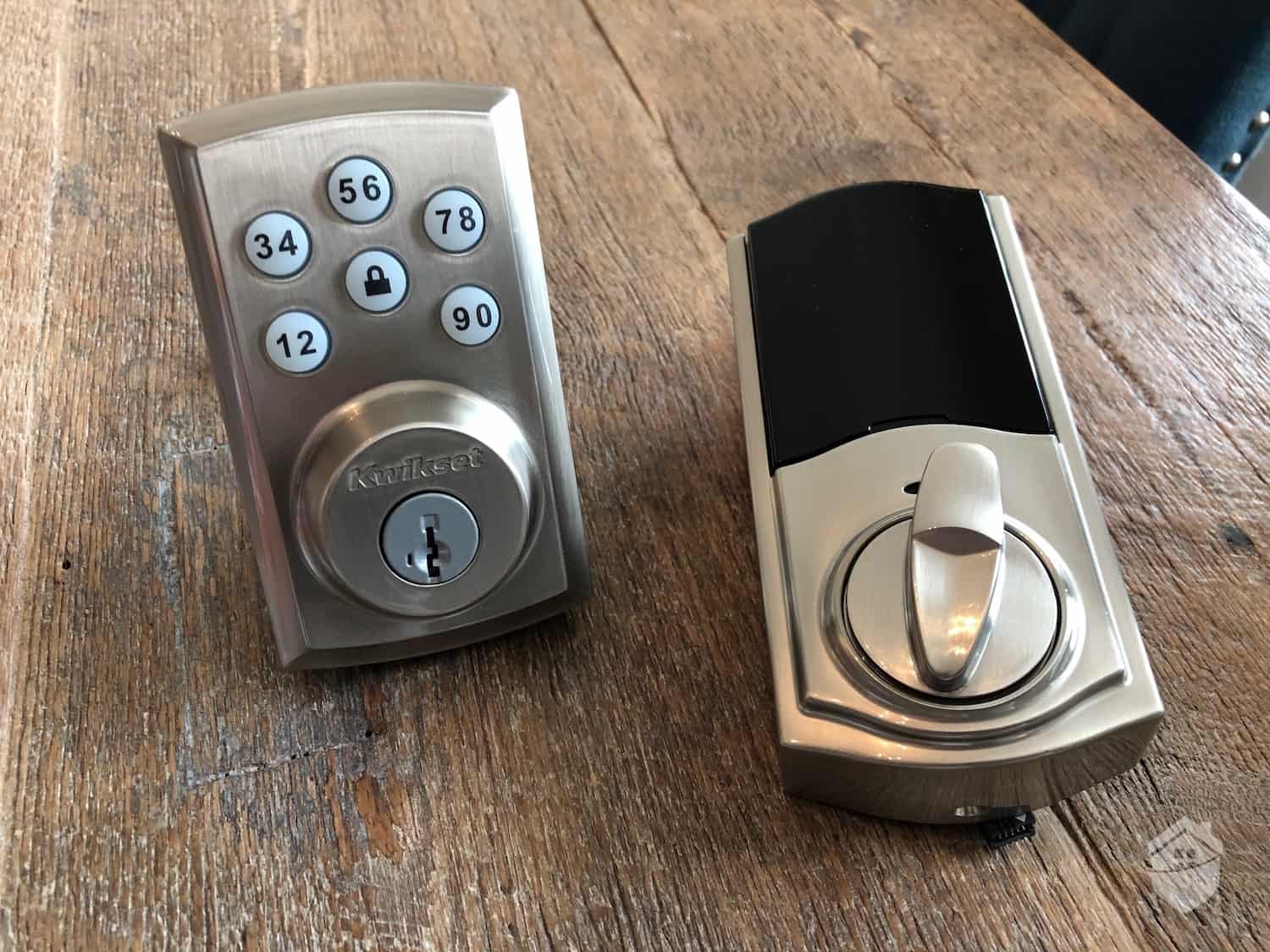Home security systems can dramatically improve physical safety, protect belongings and bring peace of mind. Our insider tips make it easier to choose an effective and affordable system from the many options. Here are SafeHome.org’s answers to common questions about home security equipment and monitoring plans.
What features are included in a basic home security system?
Home security systems are available with many features, but basic features alone might meet your needs. A basic equipment set provides magnetic sensors for all vulnerable entryways and has one or more infrared sensors to detect motion inside the home. These sensors link to a control panel that has a loud siren and a connection to the monitoring company, which can dispatch emergency personnel.
Additionally several top-ranked security companies provide keychain remote controls with their basic equipment sets. A remote control has buttons for arming the system, disarming the system and alerting emergency personnel. Mobile apps that control and monitor security systems are also available.
What advanced features are available for home security?
Advanced security systems combine the basic components described above (sensors and a control panel) with extra crime-deterring equipment. Examples of simple add-ons are glass break sensors, panic buttons for the walls, and a panic pendant to wear around the neck. Panic pendants have been lifesavers during medical emergencies as well as during home invasions.
Door locks with key codes and smartphone remote control are another advanced security feature. These are especially popular with real estate agents and with residents who have frequent visitors such as health care providers, dog walkers and babysitters.
Surveillance cameras add yet another layer of home security. Control panels can include cameras for capturing still images or video, and of course cameras can be set up throughout the home and outdoors. One special type of doorbell security camera sends mobile notifications when the doorbell rings and lets you watch surveillance footage from your smartphone. You can speak with the visitor and create the effect that you’re actually at home.
What kinds of home security cameras are available?
Modern indoor/outdoor video surveillance for home security is full color, full motion and high resolution. The best security cameras have night vision and quickly adapt to changes in lighting. Some allow remote monitoring and control via a mobile device or desktop computer.
The main difference between indoor and outdoor security cameras is the construction quality; it varies because outdoor cameras need to withstand harsher conditions. Some outdoor security cameras are enhanced with heaters and fans to help protect against the elements. Outdoor cameras also need to be more durable because they’re particularly vulnerable to attempted disabling by criminals. Some are housed in especially tamper-proof casings.
When choosing video surveillance you can choose between fixed and moving cameras. In some cases a fixed camera makes the most sense. When a moving camera is best, dome cameras are recommended because they make it more difficult to evade view. A dome camera can cover 360 degrees but makes it impossible for onlookers to know where the lens is pointed.
Will my pet trigger the motion detector?
Home security systems can be fully functional even when pets share your home. First, a typical motion sensor won’t detect a cat, dog or anyone else under 40 pounds. (Sensors with different weight settings are available too.) Second, modern home security technology can distinguish between the movements of humans and our animal companions. Speed and movement patterns are considered along with mass to help ensure that pets don’t trigger false alarms.
How do home security systems protect against fire and floods?
Besides guarding against intruders, some home security systems protect against environmental disasters by detecting heat, smoke and moisture. Alarms and text alerts can help prevent or minimize damage from fire and water.
What are the “smart home” or home automation features of security systems?
When setting up a home security system you can create a “smart home.” This is known as home automation. Mobile apps for security systems can also control and monitor your home’s lighting, thermostat and other systems. Customers choose home automation for added security, for convenience and to better control their utility expenses.
Should I choose a hardwired or wireless security system?
Hardwired and wireless security systems each have advantages and disadvantages.
A hardwired system might be the most reliable, but there’s a risk of wires being cut. Hardwired systems involve more labor for installation too.
Wireless systems can be used in more places and can be installed in about 30 minutes without help from a technician. They’re portable too; you can move a wireless system from one property to another. Cellular signals used by wireless security systems are more powerful than those used on cell phones, but a poor signal and electromagnetic interference are still possibilities.
Do wireless security systems work during home power failures?
Some wireless security systems can function during power outages. It depends on how the security system communicates with the monitoring center. If the Internet or VoIP is used, then the alarm system will lose connectivity in the event of an Internet outage. If cellular radio is used, then your alarm system will be able to maintain communication even when the power is out and you can’t get Internet service.
Do I need to sign a long contract for home security monitoring?
No. Not every home security company requires a long-term contract; monitoring agreements can be month-to-month. For month-to-month monitoring the user purchases the company’s equipment up-front or uses compatible equipment that they already own.
Sometimes when long-term contracts are involved, companies loan the equipment to the user, replace it as needed for the duration of service, and never charge an equipment fee. In other cases the customer owns the equipment at the end of the monitoring contract.
Long-term contract lengths from top security companies range from one to five years.
What if I want to switch companies? Is security equipment transferable?
Some security companies use equipment that’s transferable to other monitoring services. Others have proprietary equipment; it only works with their service. To avoid complications it’s generally best to get equipment and monitoring from the same company, but it might be wise to choose equipment that’s transferable in case you aren’t satisfied.
What if a criminal breaks the control panel?
Many alarm panels are built to be tamper-proof. Some security companies call this feature “Crash and Smash” protection. In the event that an intruder attempts to disable security by damaging the control panel, the control panel will alert the monitoring company to dispatch emergency personnel.
What if an intruder orders alarm shut-off?
Distress codes provide an extra layer of protection in case of a hostage situation. Distress codes can be words or numbers. For example, if you were taken hostage at home, the intruder might instruct you to disable the alarm. You could enter a code that seems to disable the system yet silently alerts the monitoring company that emergency help is needed. Another scenario is that the monitoring company would speak to you through the control panel when an alarm is triggered. You could respond with your true “all is well” password or say your secret distress code to indicate that an emergency response is needed.
What happens if there’s a false alarm?
Avoiding false alarms is important because 1) alarms are noisy and 2) false alarms sometimes lead to fines.
Penalties for false alarms vary by locale. In some towns the police and other emergency personnel charge hefty fines whenever they’re dispatched for a false alarm. In other towns there’s never a charge or the fine might be waived for the first offense.
A couple of measures help protect against unneeded emergency response. First, by law an alarm company needs to give you 30 seconds to disable the alarm. (To bypass the 30-second rule, add a panic button!) Second, if an alarm is triggered you’ll have the opportunity to tell the monitoring company that no service is needed.
Some security systems have voice connections built into their control panels, letting you immediately speak with an agent to call off an emergency dispatch. Other systems can text you immediately and, by law, may phone you after 30 seconds to assess whether help is needed.
How much do home security systems cost?
The cost of a home security system greatly varies depending on factors such as equipment, contracts, monitoring and more.





